Knife 21 – Hidden Tang From a File – Stacked Leather Handle
Knife 21 – Hidden Tang From a File – Stacked Leather Handle was made from a worn-out file, this would have been a great knife had I stopped and thought about the design before I built it. There are several design mistakes in this knife. The handle is too short. Not that a longer handle is a must, but for this knife style, it just doesn’t fit.
I made the finger guard stop in the same place top and bottom (see the image) so it left an unsightly gap in the blade. I then tried to fix that gap by grinding, but that only made it slightly better.
Design Note: Round handles do not provide natural indexing for the blade edge. Oval will provide an index of the edge in relationship to the grip and will also deliver the ability to apply twisting force if needed.
Short handles are very undesirable for knives that will be worked hard. They should be long enough for all fingers to squeeze the handle comfortably and securely.
Although a person with small hands could use this knife comfortably. And for short task the knife works well. A short profile also makes it easier to carry and lessens the weight. As always there are trade offs.
Knife Design
After doing a little research and looking at a lot of knives, I’ve come to the conclusion that a length of 4 1/2 inches is a good size for an average comfortable knife handle. So as rule all blades would be about 7 3/8” long. So, at times we need to skew the results of the golden ration when we want a 4” blade. The point being is a shorter blade may look better with a shorter handle, however it will not function as well, so the trade offs need to be made.
Handles will be designed longer or shorter depending on the type of knife, it’s intended use, and also possibly the size of the user’s hands. This can be a personal preference as well on a custom knife. In general, a handle a little too long is better and more comfortable than a knife handle to short.
Blade lengths will be longer or shorter depending on the kind of knife, the intended use, and so forth.
As with most physical design functions, a paper draft can look much different than when the knife is built. It’s always a good idea to make a wood or cardboard mockup. I have gotten into the habit of making a template as part of the build. This helps in two areas. It allows it to be seen in physical form, and it allows it to be duplicated or modified if another one is to be made.
- Design the knife based on its function.
- Test your design
- Use prototypes
Here Knife 21 – Hidden Tang From a File – Stacked Leather Handle is fully profiled. The bevel was ground on the belt grinder. Note the notches in the tang to help the epoxy grip.
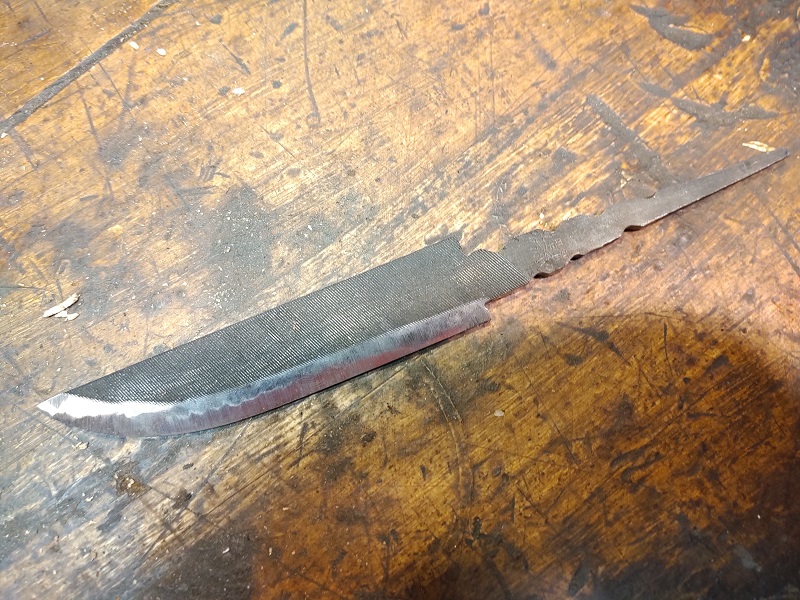
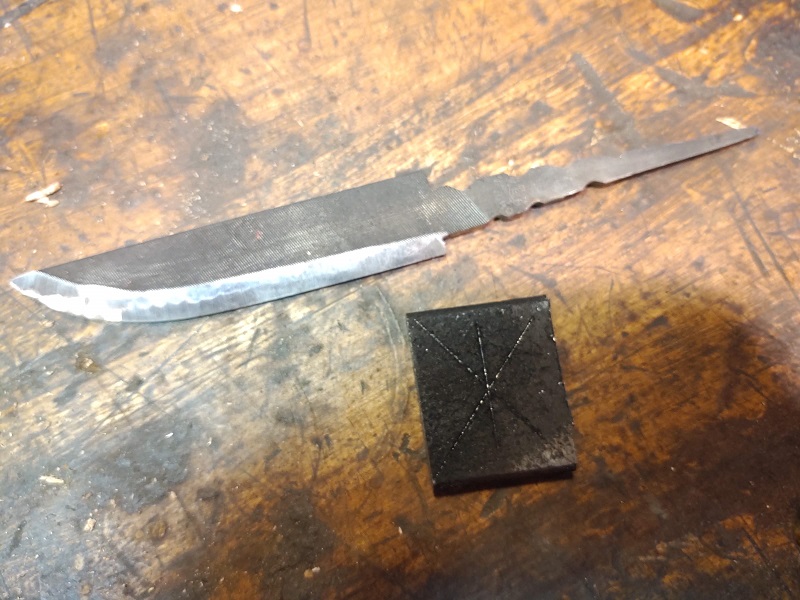
The Knife guard was cut from a piece of steel I found laying around the shop.

Next up is cutting and stacking the handle leather. I save all my scrap leather just for this purpose. I cut the pieces in squares and punch a center slot for the tang.
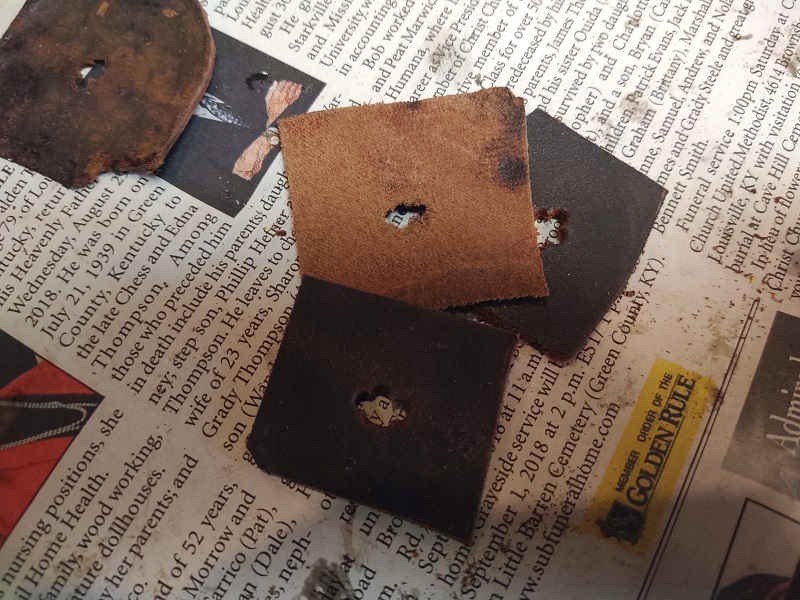
Then after putting the finger guard on I coat each piece with epoxy (using slow curing) and stack and clamp it.
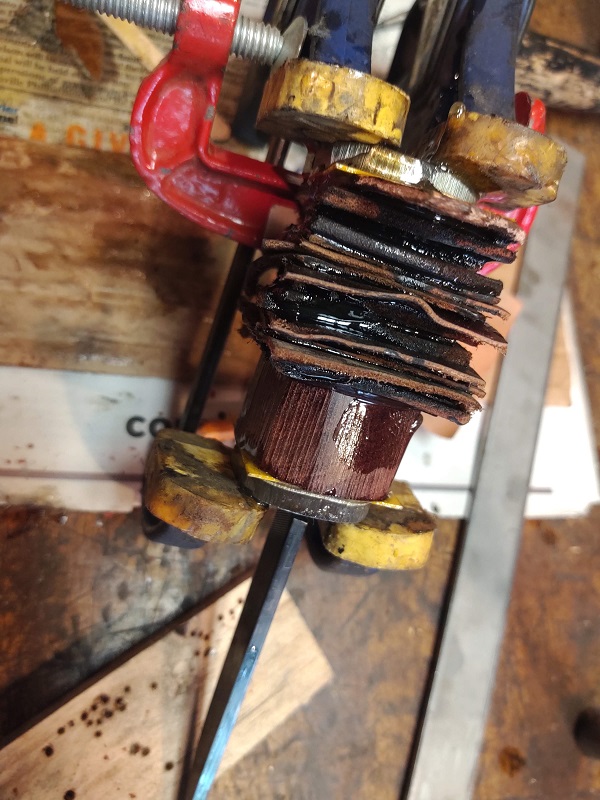
After the epoxy cures it’s time to profile the handle. I cut to basic shape on the band saw

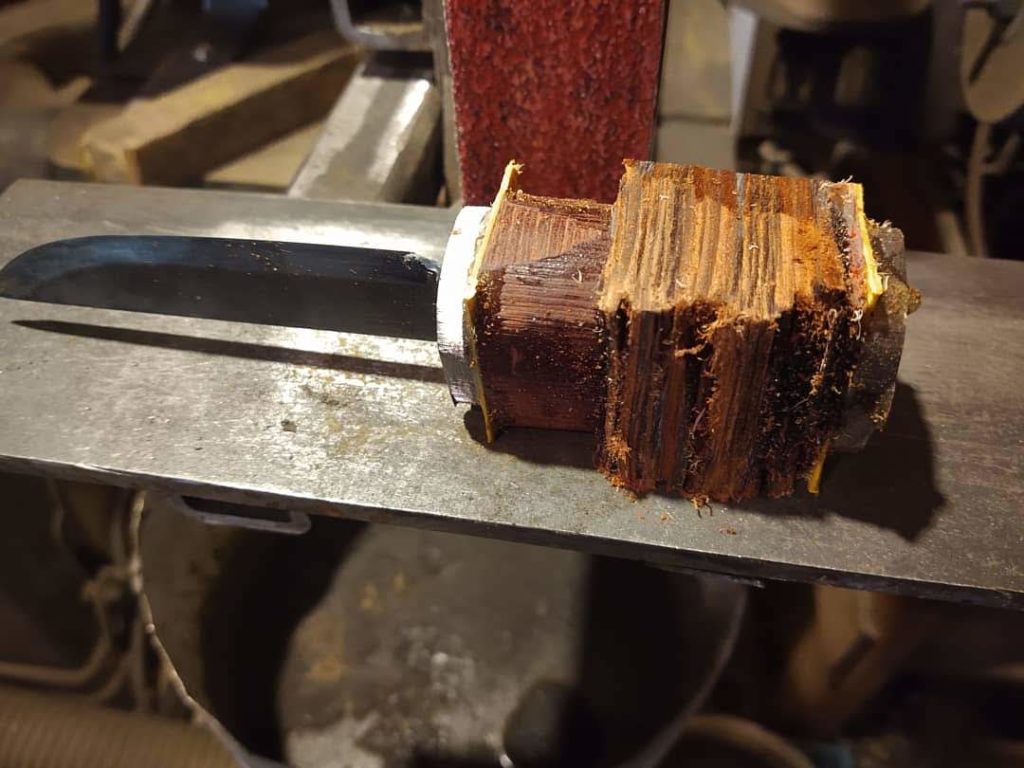
Taping the blade not only protects the blade from epoxy and being scratched, it also helps protect me from the sharp edge.

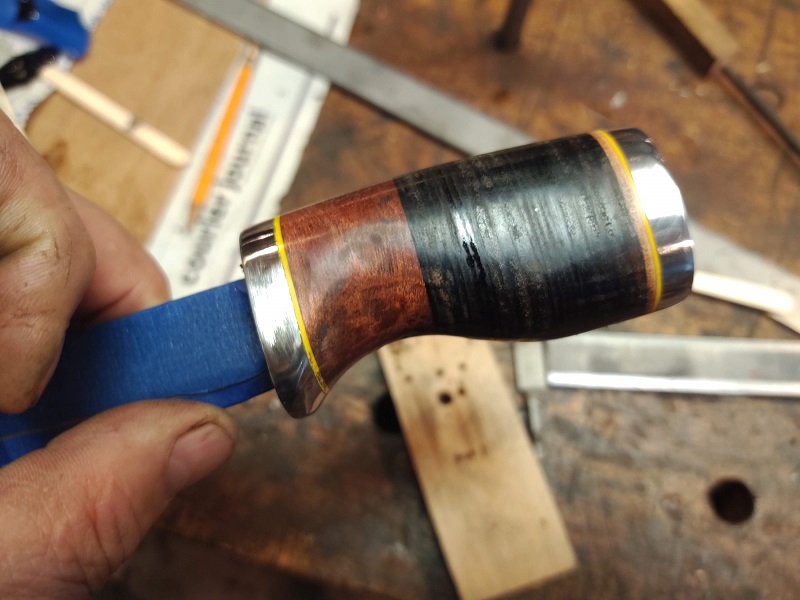
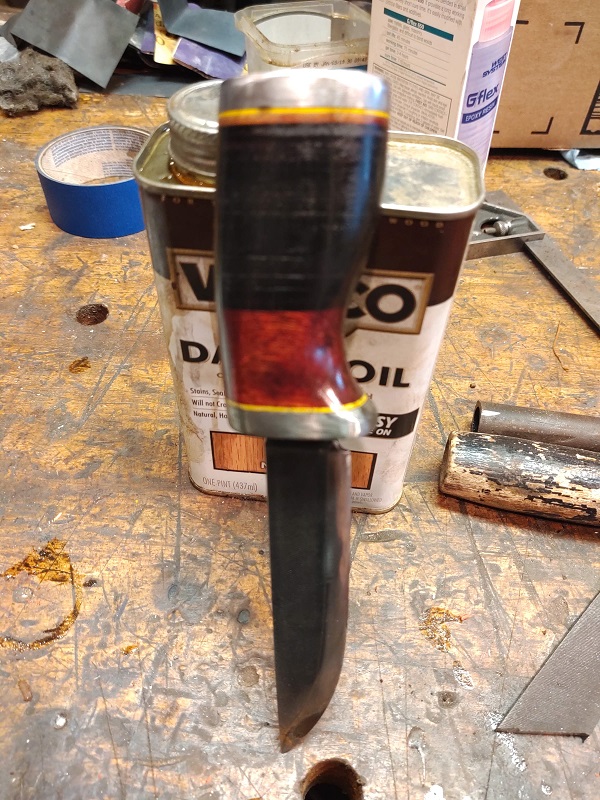
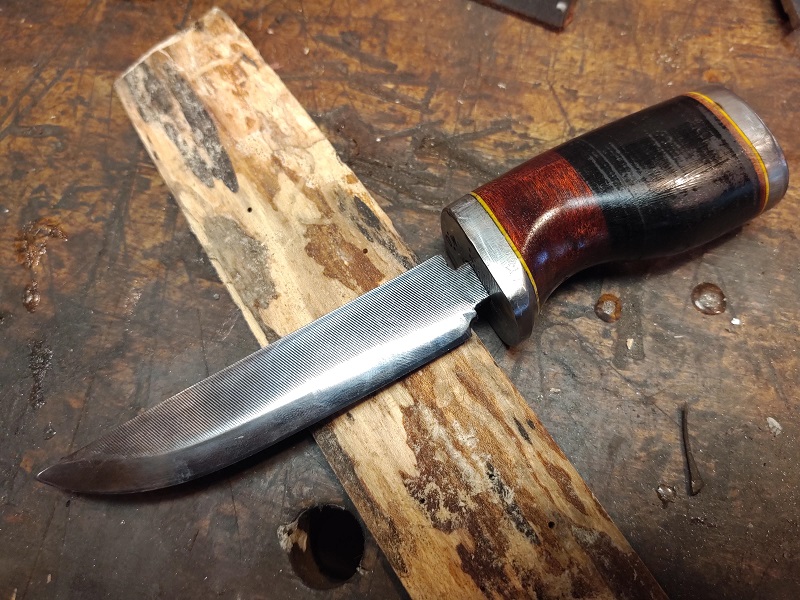
Here is the design flaw. It was a foolish mistake and a poorly executed build. I’ll chalk it up to inexperience.
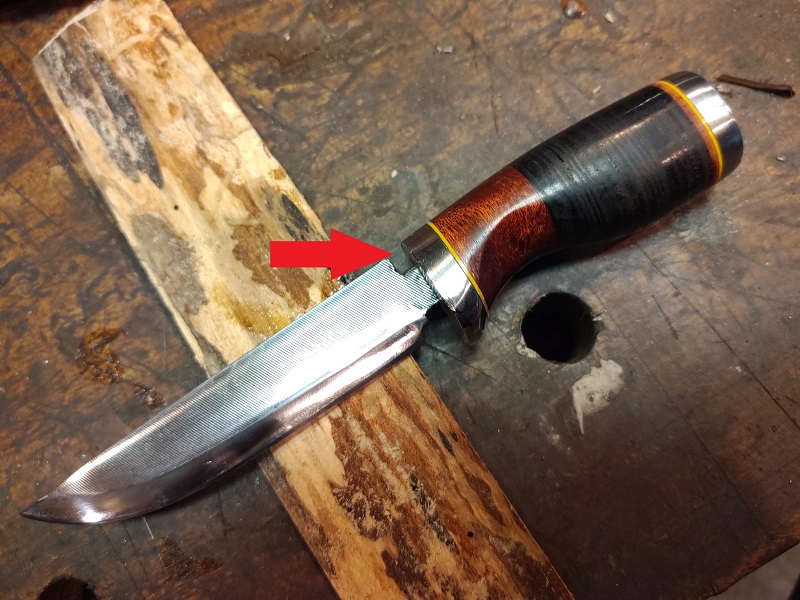
Next is a half-hearted attempt to fix it by grinding the back down. It looked better, but I’m still not very happy with myself on this one.
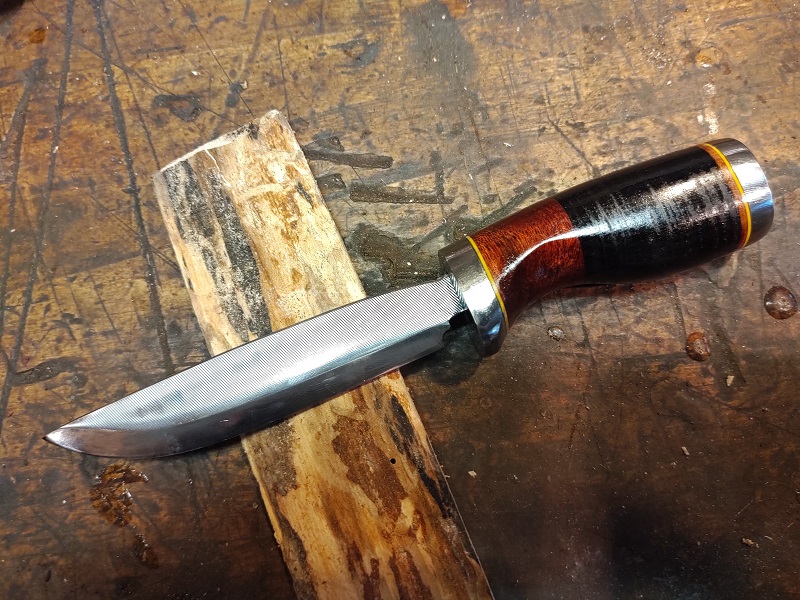
________________
As an Amazon associate, we earn income from qualifying purchases when you click on a link. Your link clicks help us fund our website.________________
